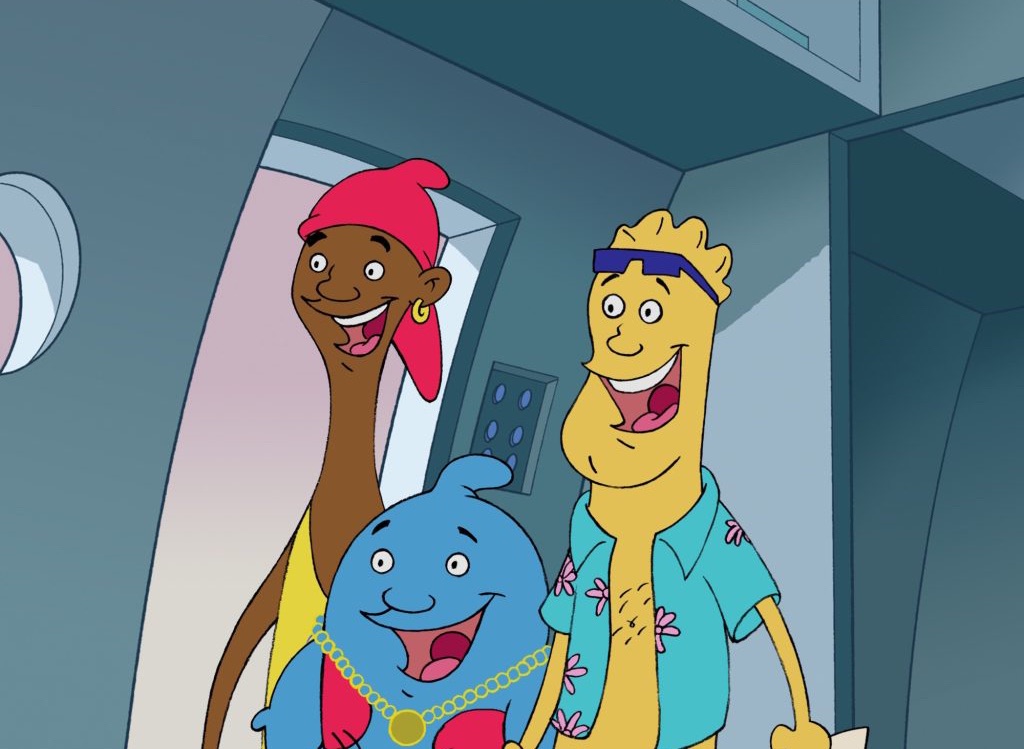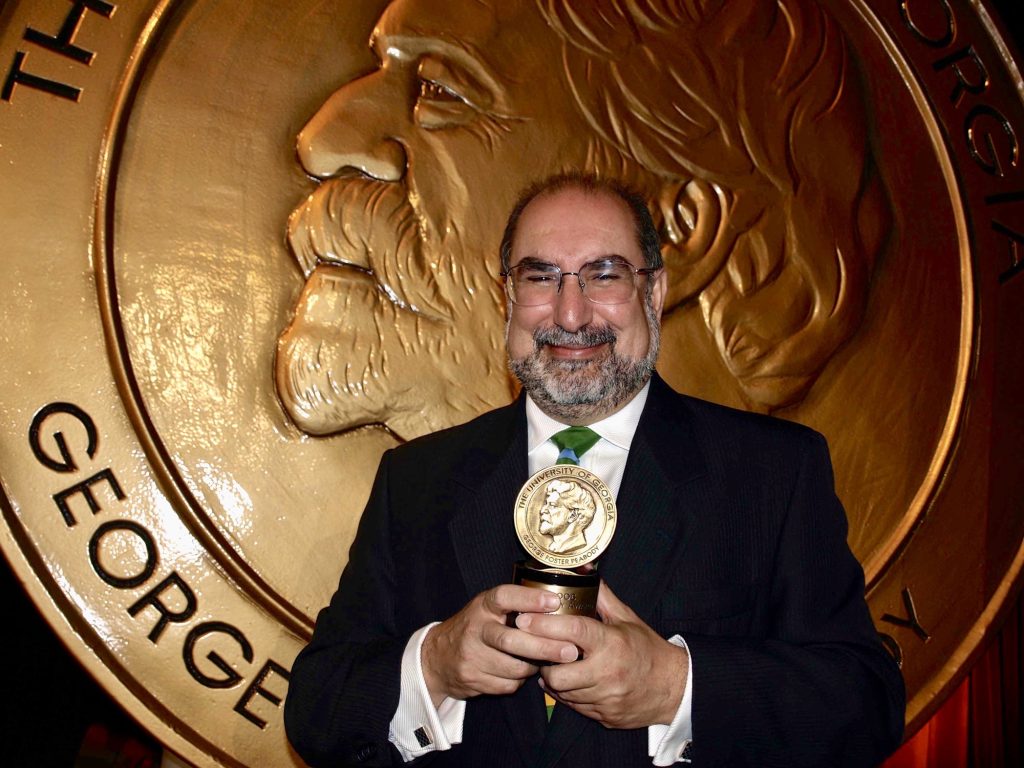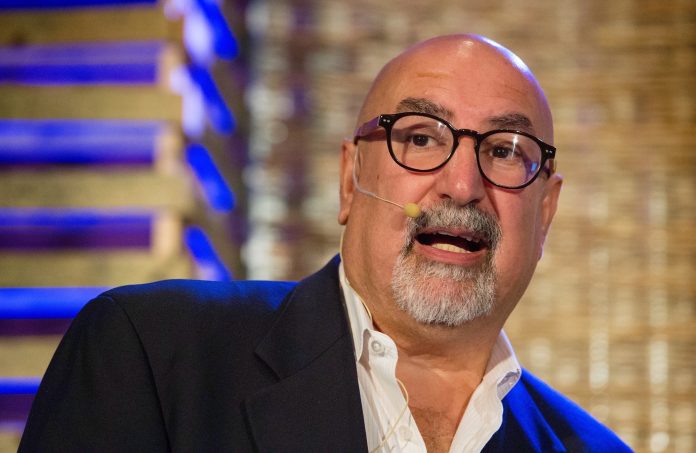By Hannah Wanamaker
It was a mid-November day in 2023 when Firdaus Kharas’ phone rang. He wasn’t expecting a call.
On the line was Governor General Mary Simon who said she would be appointing him as an Officer of the Order of Canada.
“I do think that the Order of Canada is a great recognition of the service that Canadians have done, either to our country or to humanity in general,” Kharas said.
The Order of Canada is the second highest award in Canada that celebrates citizens who have made extraordinary contributions to society. It was implemented in 1967 to replace the British knighthood honour.
Kharas is recognized on the Order of Canada Appointees website “for advancing social change through human-centred media as a social entrepreneur, humanitarian and mass communications media producer.”
The Westboro-based immigrant from India creates animation series to educate and improve people’s lives worldwide. He addresses human rights and global issues through short videos that are broadcast freely across the globe in over 500 languages and dialects. His animation has been recognized by world leaders like the United Nations and the World Health Organization [WHO].
“At the root of what makes his work so special is his ability to communicate – he’s a storyteller and each of his videos is a story,” said Frank Taylor, Kharas’ longtime friend and business partner.

Kharas uses animation and humour to create universal characters and circumvent communication barriers. His videos also create cognitive dissonance which leads to behaviour changes in viewers.
People are more receptive to messages when they can’t see images of themselves. In his series on domestic violence, the characters are blue because “no real person is blue,” he said.
Since humour is difficult to translate for universal campaigns, each script is tailored to its audience based on language conventions and cultural norms. Animation also allows Kharas to sync the voice-overs with minimal adjustments to the video.
“We rewrite the script in every language. We don’t translate it, so that the humour is local,” he said.
“Many public service announcements over the years have taken the approach of ‘do this because I say so’ … and I don’t think that really gets through,” said Kharas. “I don’t think that imposing behavior change works, so humour is just to bring the viewer to the serious point I’m making at the end.”
The Westboro resident’s videos are influential catalysts for change because he presents an “alternate way of thinking or of doing.” By creating characters who perpetrate unwanted behaviours, the final tagline message is better internalized which enables behaviour change, said Kharas.
“The idea wasn’t that I was going to change anybody’s behaviour by watching a video. It was designed to spark a conversation, and it is that conversation that creates the behaviour change.”

Kharas said his animation series “The Three Amigos” is among his most impactful works. Made in Canada and launched for the United Nations in 2005, the 20 short videos featuring three animated talking condoms, Shaft, Stretch and Dick have become the best-known condom campaign across the world.
“We wanted to destigmatize the condom because it was the best way that the WHO and everyone had said to stop the spread of AIDS, and I think we did that.” The series played in over 150 countries at the height of the HIV crisis before any antiretroviral drugs became available.
The Three Amigos was extensively played in South Africa, which had the highest infection rates. South Africans had become so familiar with the campaign that when they bought condoms, “they would ask for an amigo,” said Kharas with a chuckle.
The series played on loop on national television, arena jumbotrons, plasma screens at bus stations and in every hospital and health clinic across the country. Universities also mandated that staff and students watch the series before starting on campus.
While the condom campaign had the biggest global impact, Kharas said his animated ebola series was his most impactful. The three short videos, each with its own purpose, played across Guinea, Sierra Leone and Liberia in 17 languages.
“The first one [“A Poem for the Living”] was designed to contain the crisis while it was happening in West Africa,” he said, adding that it had over one million views on one site.
The second, “In Praise of Prevention,” was dedicated to preventative measures the community could take to stop the spread. The final one, “Beyond Survival,” was dedicated to tackling stigma among teenage survivors.
WHO predicted a death toll of over one million people from ebola. To Kharas’ surprise, the death toll after the videos aired was only 11,000.

While Kharas sees some of the larger impacts of his work, he seldom sees how his work touches people.
“There are so many times that I don’t know what happens to my work. Once in a while. I get snippets,” he said.
Viewers seldom know about Kharas due to high levels of redistribution of his work. While he has won over 100 awards, including a Peabody for the Three Amigos, his work is still not well known in Canada.
The Governor General wrote on the Order of Canada website that the award highlights “individuals whose exceptional accomplishments may have gone unrecognized through the years.”
Taylor echoed that despite the grand scope of issues Kharas has worked on, his work is not well known across Canada. “I think it’s high time that he received this recognition,” he said.
“Normally with the Order of Canada, one becomes a member of the Order of Canada and then they may graduate up to Officer, but Firdaus was immediately made an officer which is a remarkable achievement. It signals the sheer importance of what he’s done and the scale on which he’s done it,” Taylor added.
